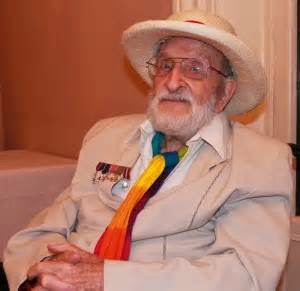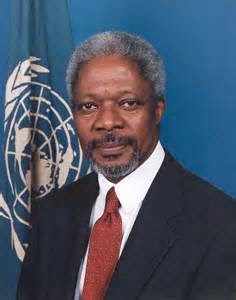What you possibly didn't know about Martin that he :
* when back in Britain, studied for a history and economics degree at Trinity College, Cambridge and then a postgraduate, 'colonial service' degree at Worcester College, Oxford, before joining the Service in 1952 and left Britain to work as an administrative officer in Northern Nigeria for nine years until the age of 36 in 1961.
 * in Nigeria, concentrated his efforts on the Tiv, the fourth largest ethnic group with 3.7 million speakers, learned how to speak their language, fought discrimination against them and worked tirelessly to improve the educational opportunities of their children, offering scholarships funded from his own earnings.
* in Nigeria, concentrated his efforts on the Tiv, the fourth largest ethnic group with 3.7 million speakers, learned how to speak their language, fought discrimination against them and worked tirelessly to improve the educational opportunities of their children, offering scholarships funded from his own earnings. * in 1960, quelled touble in Tiv territory, went in unarmed, called for order and got 2,000 people in two antagonistic factions to lay down their arms and invited the two rival chiefs to join him for tea.
 * in 1961, after Nigeria gained independence, defended Tiv senator, Joseph Tarka, against charges of treason was hauled before his British boss and, as he later said, "was told what I had done was bad for the British Empire, an Empire which I believed no longer to exist in Nigeria at that time. I was sent on leave, dismissed in my absence and I lost my pension."
* in 1961, after Nigeria gained independence, defended Tiv senator, Joseph Tarka, against charges of treason was hauled before his British boss and, as he later said, "was told what I had done was bad for the British Empire, an Empire which I believed no longer to exist in Nigeria at that time. I was sent on leave, dismissed in my absence and I lost my pension."* returned to Britain and after studying politics as a post-graduate at Cambridge University, at the age of 38 in 1963, joined the teaching staff at Keele University with specialism in African politics and issues related to the peace-making and peace-keeping in multi-ethnic societies..
* in the 1980s, became increasingly concerned as the neediest nations struggled with rising payments, often for loans to corrupt regimes during the Cold War from banks, less than cautious about how much they lent to Third World nations, now paying more and more interest as they plunged deeper and deeper into debt.
* was convinced that, as the great-great-great-grandson of Thomas Foxwell Buxton, who took over the leadership of the abolition of slavery movement in the House of Commons after William Wilberforce retired in 1825, it was his duty to follow in his footsteps and argued that financial debt which imposed a 'new slavery' on countries in the developing also required abolition.

* applied the idea of a 'debt amnesty' to Third World countries for the Millennium in 2000, based on the old Judaic tradition of a 'jubilee year', when a ram's horn was blown and all debts were forgiven in one unrepeatable action.
* launched the amnesty in 1990 with students at Keele University, sending the UN Secretary-General a petition calling on him to declare the millennium year one of 'Jubilee and Debt Remission' for the World's poorest countries.
* in 1992 at the age of 67, was made an 'Honorary Chief' by the Tiv tribe, the first non-African to receive the title, 'Asoor Tiv' or 'the peacemaker of the Tiv' and continued to sort out disputes such as the one over ownership of a 10 sq km patch of land by the River Kungwa Jov, which had claimed more than 100 lives.
.jpg)
 * after initial enthusiasm or debt remission had faded, used his time in retirement to write to MPs, ambassadors, bishops and bank chairmen and prayed twice a day for help until, in 1993, he joined forces with the Bill Peters who had ended his career as High Commissioner in Malawi in the early 1980s, just as the debt crisis began to bite and noted that "it was a very striking thing, children began to appear with potbellies, houses had no roofs."
* after initial enthusiasm or debt remission had faded, used his time in retirement to write to MPs, ambassadors, bishops and bank chairmen and prayed twice a day for help until, in 1993, he joined forces with the Bill Peters who had ended his career as High Commissioner in Malawi in the early 1980s, just as the debt crisis began to bite and noted that "it was a very striking thing, children began to appear with potbellies, houses had no roofs."* in 1996, together with Bill, used his charisma and Bill's realpolitik to create the 'Jubilee Debt Coalition’, which included Churches, faith groups, aid agencies, the BMA and the TUC and in 1998 gained publicity by organising the six mile, 70,000 strong 'Human Chain' with symbolic chains being grasped and ram's horns blown, around the G8 Meeting with President Clinton and his counterparts in Birmingham :
http://uk.search.yahoo.com/search?fr=mcafee&type=A211GB0&p=jubilee+2000+the+human+chain+you+tube
* by the turn of the century, saw more than 20 million people from 155 countries add their names to the Petition, with Archbishop Desmond Tutu as a patron and support from Bono, Muhammad Ali, Bob Geldof, Peter Gabriel and Youssou N'Dour.

* had George Carey, the Archbishop of Canterbury, say of him in reference to 'unsung heroes' in his BBC tv speech on New Year's Day 2001 : "Or maybe you've heard of the Jubilee 2000 campaign aiming to mark the millennium by cancelling the debts of the world's poorest countries. This movement of ordinary people has already wiped out $100bn of those debts ... a mighty achievement considering the idea came from Bill Peters and Martin Dent, two retired gentlemen who no-one's ever heard of."
.jpg)
* received from Kofi Annan the acknowledgement that : “A flame of hope has been kindled in the poorest countries of the world…. On behalf of the United Nations, I extend my deep gratitude to you all for your indefatigable efforts… millions of people are indebted to you.”
* along with Bill received the Gandhi Foundation International Peace Award in 2000 in recognition of their efforts and the success of the Jubilee 2000 campaign, which ‘made possible the provision of basic education and health-care to thousands of people.’
* was conscious that the success of the campaign had, in reality, been limited with only 11 countries receiving debt relief and only one having any debt cancelled and said : " I don't think God ever gives you 100% victory in what you set out to do", but nevertheless was convinced that others would follow in its footsteps when he wound up the Campaign.
 * in 2012, at the age of 87, shared afternoon tea with members of the Tiv when they visited his nursing home and had who Chief Ullam, aged 67, who he had helped as a boy said of him : "The Tiv people have a lot of affection for him because he fought very well for the welfare of a minority group and with that came the fight for justice. He was a very fair man."
* in 2012, at the age of 87, shared afternoon tea with members of the Tiv when they visited his nursing home and had who Chief Ullam, aged 67, who he had helped as a boy said of him : "The Tiv people have a lot of affection for him because he fought very well for the welfare of a minority group and with that came the fight for justice. He was a very fair man.".
.jpg) * after his death Bulent Gokay, Professor of International Relations at Keele, said of him :
* after his death Bulent Gokay, Professor of International Relations at Keele, said of him :"He was one of those very rare, extremely inspirational and visionary individuals. He is described by former students and colleagues as a well-loved lecturer, a great English eccentric, a campaigner for justice, a fantastic academic and a true philanthropist."
 * and Martin Harrison, former Head of the Politics Department at Keele :"He was the sort of teacher that people remembered affectionately and they would always have some sort of anecdote, particularly about his generosity and enthusiasm. When people referred to Martin, it was always with a smile."
* and Martin Harrison, former Head of the Politics Department at Keele :"He was the sort of teacher that people remembered affectionately and they would always have some sort of anecdote, particularly about his generosity and enthusiasm. When people referred to Martin, it was always with a smile."* said of himself, with perfect self-effacement, as groups moved in, took the credit for Third World debt relief and downplayed his role with Bill : "Among the Tiv people there is a saying, 'Or Sor on tar a ye ga' - the one who heals the land never eats.They mean that if someone is looking for personal honour he will not succeed in his high task."
http://jubileedebt.org.uk/


.jpg)

No comments:
Post a Comment